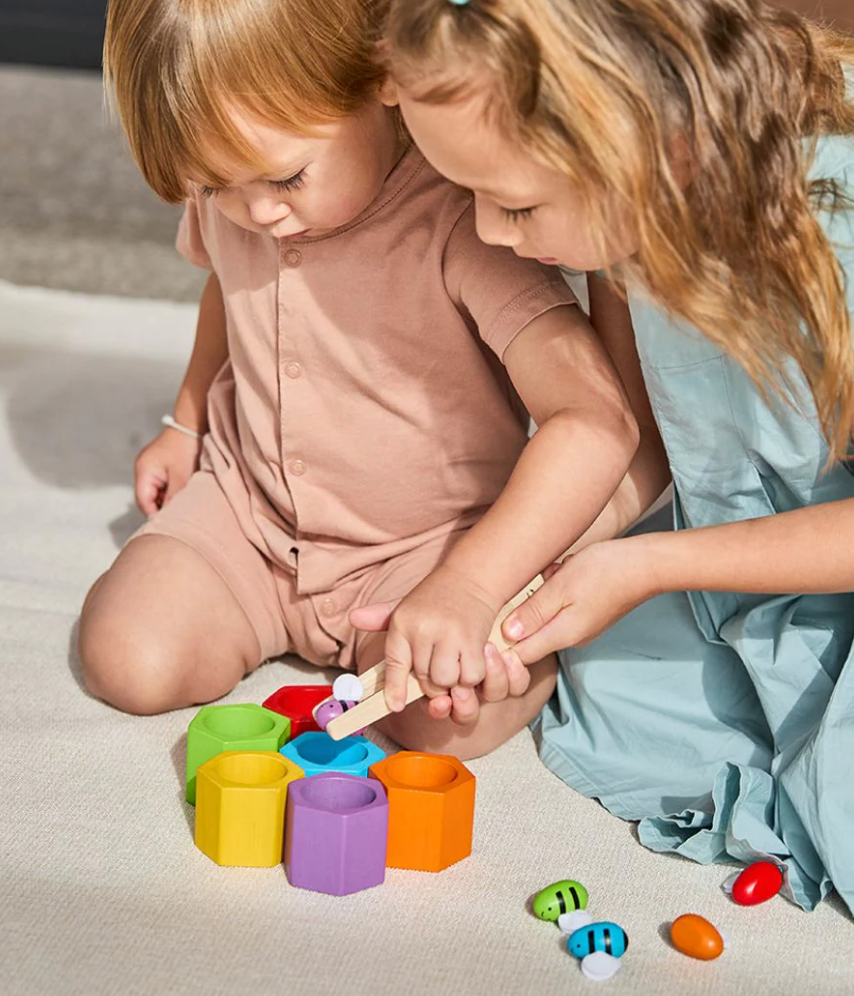
The Importance of Purposeful Play
"The greatest gifts we can give our children are the roots of responsibility and the wings of independence." - Maria Montessori
So you've heard the phrase Purposeful Play, but what does it really mean?
Here at Little Green we believe ALL play has some form of purpose & meaning to a child and their development. Every time you see a child playing dress-up, telling crazy stories, digging in the sand with a stick, or chasing a friend at the playground, they are all playing with purpose.
On the surface, it may seem like they are just having fun and "just being kids", but in reality, while they are playing, kids are also developing cognitive, linguistic, and social and emotional skills. Like baby lions jumping on each other to learn to hunt, play in children is how the human brain begins to develop knowledge and experience with the world that surrounds us.
Benefits of Purposeful Play
Research has shown that purposeful play has numerous benefits for children, including:
-
Enhanced cognitive development
-
Improved social skills
-
Increased creativity and imagination
-
Better problem-solving abilities
-
Enhanced language and communication skills
How Does Purposeful Play Work?
When children engage in purposeful play, they are actively involved in the learning process. Through play, they can make sense of the world around them, develop critical thinking skills, and learn how to interact with others. Purposeful play also allows children to express themselves, build confidence, and develop a sense of autonomy and independence.
Creating a Purposeful Play Environment
The quality of a child's play time and materials have a direct influence on that development. This includes providing access to a variety of toys, games, and materials that encourage exploration and creativity. It also involves setting aside dedicated time for play, both indoors and outdoors, and allowing children the freedom to choose their activities and follow their interests.
By incorporating purposeful play into a child's daily routine, parents and educators can support their overall development and well-being. So, the next time you see a child engaged in play, remember that it is not just a pastime – it is a valuable learning experience that can shape their future.
Open-ended toys like blocks, art supplies, and natural materials allow children to explore different possibilities and create their own games - a hallmark of developing creative thinking & problem solving.
Pretend play can encourage imagination and allows a child to role-play social behaviors. Children have opportunities to learn cooperation & negotiation skills, and to develop empathy through interactions with others. It can also provide a safe space to express emotions and work through challenging situations.
Cutting, stacking, building & especially outdoor toys can encourage gross & fine motor development, coordination, and physical health.
Picking out clothing & learning to put on their own clothes encourages independence, critical thinking and self-expression.
Here at Little Green we are absolutely obsessed with all of these connections and use these concepts of playing with purposeful when choosing the items in the shop.
We have put together a curated selection of toys, books, games & crafts that encourage age appropriate development, are made using quality materials &/or sustainable practices.